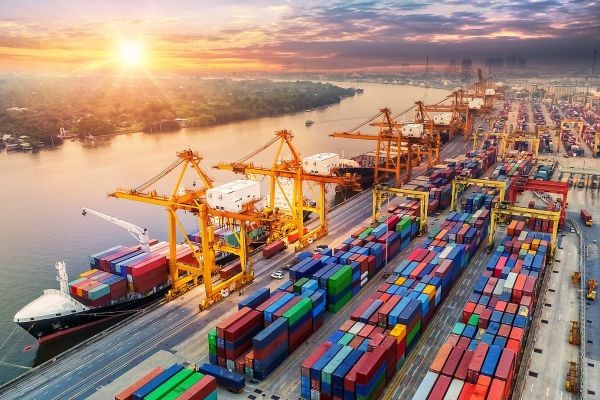New Zealand's Role in International Trade New Zealand's Role in International Trade
As a nation with a rich tapestry of culture and innovation, New Zealand holds a unique position in the global market. Understanding New Zealand's role in international trade is crucial not only for economic growth but also for sustaining its cultural and environmental values. This article delves into how New Zealand navigates its trade relationships and leverages its strengths to maintain a competitive edge on the world stage.
The Significance of Trade for New Zealand
Trade is the lifeblood of New Zealand's economy. With a small domestic market, international trade allows New Zealand to expand its economic footprint. Exports and imports accounted for around 60% of New Zealand's GDP in 2021, illustrating the country's heavy reliance on international markets.
New Zealand's geographical isolation poses challenges but also offers opportunities to develop niche markets. The country’s clean, green image has become a significant selling point, especially for agricultural products.
Key Sectors in New Zealand's Trade
Agriculture: The Backbone of Exports
New Zealand's agricultural sector is a cornerstone of its trade economy. Products such as dairy, meat, and wine are in high demand globally, with dairy exports alone contributing over NZD 19 billion in 2021.
According to DairyNZ, 95% of New Zealand's dairy products are exported, demonstrating the sector's critical role in the economy. Similarly, New Zealand's lamb and beef are sought after for their quality, with exports reaching NZD 9 billion in 2020.
Technology: An Emerging Force
While agriculture dominates, technology is rapidly emerging as a key player. Companies like Xero and Rocket Lab are putting New Zealand on the map. Xero, a cloud-based accounting software, serves over 2 million subscribers worldwide, showcasing New Zealand innovation.
Rocket Lab, a private aerospace manufacturer, has successfully launched numerous rockets from its Mahia Peninsula site, demonstrating New Zealand's potential in space technology.
Tourism: A Double-Edged Sword
Tourism has been a significant contributor to New Zealand's GDP, accounting for 5.8% pre-COVID-19. However, the pandemic highlighted vulnerabilities in over-reliance on international tourists.
The industry is now focusing on sustainable tourism, aligning with New Zealand's environmental ethos. This shift aims to attract tourists who appreciate the country's natural beauty and cultural heritage.
Trade Agreements and Partnerships
New Zealand has strategically positioned itself through various trade agreements. The Comprehensive and Progressive Agreement for Trans-Pacific Partnership (CPTPP) and the New Zealand-China Free Trade Agreement are pivotal.
In 2021, China was New Zealand's largest trading partner, with bilateral trade exceeding NZD 33 billion. The relationship underscores the importance of maintaining strong diplomatic and economic ties.
Regional Comprehensive Economic Partnership (RCEP)
New Zealand is also a member of the RCEP, a trade agreement among 15 Asia-Pacific nations. This agreement opens up new markets and reduces trade barriers, further integrating New Zealand into the regional economy.
Trade Minister Damien O'Connor noted, "RCEP provides our businesses with greater access to some of the world's largest and fastest-growing markets."
Challenges and Opportunities
Environmental Concerns
New Zealand is committed to addressing environmental challenges, which impact trade policies. As a signatory to the Paris Agreement, the country aims to reduce greenhouse gas emissions, influencing its agricultural practices.
Environmental sustainability must balance economic growth, a challenge requiring innovative solutions and international cooperation.
Geopolitical Tensions
Global geopolitical tensions pose risks to trade stability. New Zealand must navigate these complexities carefully, ensuring that its trade relationships remain robust and beneficial.
A cautious approach is crucial, as shifts in global power dynamics could impact New Zealand's access to key markets.
Case Studies: Kiwi Success Stories
Fonterra: Leading the Dairy Sector
Fonterra, a global dairy giant, exemplifies New Zealand's export prowess. With operations in over 140 countries, Fonterra's success is attributed to its focus on quality and sustainability.
The cooperative model empowers local farmers, contributing to regional economies while meeting international demand.
Zespri: A Kiwi Fruit Success
Zespri is another success story, dominating the global kiwifruit market. The company’s innovative marketing strategies and commitment to quality have driven its growth.
Zespri's focus on sustainable practices aligns with consumers' increasing environmental consciousness, enhancing its global appeal.
Weta Workshop: Creative Exports
Weta Workshop, renowned for its work in film and creative industries, showcases New Zealand's artistic talent. Its contributions to films like "The Lord of the Rings" trilogy have cemented its international reputation.
By exporting creativity, Weta Workshop exemplifies New Zealand's diverse trade capabilities beyond traditional sectors.
The Future of New Zealand's Trade
Innovation and Technology
Investment in technology and innovation is crucial for New Zealand's trade future. Supporting startups and fostering a culture of innovation can drive economic growth and diversify exports.
Programs like Callaghan Innovation provide funding and support for research and development, positioning New Zealand as a hub for tech innovation.
Building Resilience
Strengthening domestic supply chains and diversifying export markets are key strategies for enhancing resilience. The COVID-19 pandemic underscored the importance of adaptability in global trade.
By investing in infrastructure and logistics, New Zealand can mitigate external shocks and maintain trade stability.
Conclusion
New Zealand's role in international trade is multifaceted and evolving. By leveraging its strengths in agriculture and technology, and embracing sustainability, New Zealand can thrive in the global market.
As the world navigates complex challenges, a cautious yet innovative approach is essential. By fostering strong trade relationships and embracing environmental stewardship, New Zealand can secure a prosperous future in international trade.
Actionable Takeaways
- Focus on sustainability in agriculture to meet global demand and environmental goals.
- Invest in technology and innovation to diversify export offerings.
- Strengthen trade relationships through strategic agreements and partnerships.
- Build resilience by enhancing domestic supply chains and market diversification.
































kandicemanjarr
8 months ago